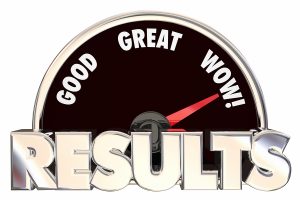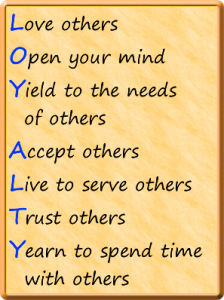05Managers or Leaders
 If you listen to how many people talk about leadership, one thing becomes clear. They don’t really know what leadership is. You may hear them talk about someone being promoted or hired into a position of leadership.
If you listen to how many people talk about leadership, one thing becomes clear. They don’t really know what leadership is. You may hear them talk about someone being promoted or hired into a position of leadership.
That also tells us that many people put management and leadership in the same bundle. When people say that the leader should be finding new opportunities for the team and focus more on improving process, they are really saying that these are behaviors they would like to see in their managers that obviously they aren’t seeing. But it’s not leadership.
Remember the simple formula:
managers are about process, leaders are about people.
So seeking new opportunities and improving process, making life easier for employees; those are the job of the manager. Equipping, empowering, encouraging, motivating, and growing are the roles of the leader.
That said, to be a truly effective manager you must also be an effective leader. In fact, perhaps what employees are really telling us is that they would like to see their managers both be more proactive in their management roles but also would like to see them be better leaders than they are.
Leaders are Grown
I mentioned earlier that leaders have a responsibility to grow their followers. It’s an enormous responsibility. But for a leader to grow others, they must first grow themselves. You cannot give what you don’t have to give. I think leaders are recognizing this more and more. A Pew Research survey asked people what they think they need the most in order to be better equipped for the jobs. What were the top answers?
Interpersonal skills. Communication skills. In other words,
Leadership SKILLS
The challenge is that we can’t just throw a band aid on it. Offering one training course won’t do it. Sending someone to a conference isn’t enough. Giving them a book to read will not make them any more of an effective leader than sitting in a boat makes you a good sailor.
Leaders Sail the Waters Daily
 While sitting in the boat you are surrounded by the tools you need to sail, but you must first gain knowledge about sailing. You must spend time developing and applying the skills to sail. Knowing how to gauge the wind. Navigating the water. Determining course. Bringing all elements in line with moving in the desired direction on the water. You must know how to trim the sails and handle the helm. How to coordinate the crew and change direction as the sea and wind changes to keep the ship on course. You must be mentored by a more experienced sailor. You also must learn from your mistakes on the water. And you must do all of this day in and day out to become the sailor you need to be. The sailor you are meant to be.
While sitting in the boat you are surrounded by the tools you need to sail, but you must first gain knowledge about sailing. You must spend time developing and applying the skills to sail. Knowing how to gauge the wind. Navigating the water. Determining course. Bringing all elements in line with moving in the desired direction on the water. You must know how to trim the sails and handle the helm. How to coordinate the crew and change direction as the sea and wind changes to keep the ship on course. You must be mentored by a more experienced sailor. You also must learn from your mistakes on the water. And you must do all of this day in and day out to become the sailor you need to be. The sailor you are meant to be.
If you are not engaged DAILY in developing your leadership skills, the growth necessary to become an excellent leader will simply not occur. At best it will be haphazard and slow.
For optimal leadership growth, it needs to be
- Daily – you must do something every day to develop your skills
- Intentional – you must have a plan for the skills you need to develop and how you will develop them
- Scheduled – you must set aside time on your calendar for it; otherwise any excuse will help you avoid it
- Guided – Someone needs to help you see and navigate the process; like a coach or mentor
- Progressive – build on a skill one by one; don’t attempt to master anything in a day
Spend as much (if not more) time on developing yourself and your people as you do your business. When you do, you will be surprised to find how many of the other process-oriented problems will take care of themselves.
Not sure how to start on your intentional leadership journey? Call me Today for a FREE discovery Strategy session at 321-355-2442 or email me.
Here’s some ways to get started
- Identify three skills you need to develop further. Remember to work from a position of strength and not weakness; in other words, identify your three strongest skills and seek to make them better. I can help you with this.
- Pick the one you want to start on. Locate resources to help you develop that skill and secure them.
- Set aside time on your calendar DAILY to work on it. It should be the same time every day. Guard it ruthlessly; let nothing short of a client need or spurting blood interrupt it.
- Keep me posted on how you’re doing. I want to hear your success stories and your challenges.








